
If you follow my blog then you know that I homeschool my two girls. Right now they are doing third and forth grade work. One of their favorite subjects is science, so I am always looking for books to pick up and read to them as part of our schooling to get them even more excited about science, as we all know the field of science is populated by a lot of women. My hope is to show them that if they want to pursue a job in the science field, that they can do it, even if they are a girl.
I am always scouring the Internet and bookstore shelves looking for books for kids about science. And, sometimes I am sent emails from publishers sharing new book releases for kids that fit the bill. A couple of months ago, the folks at Source Books reached out and asked if I wanted to check out their Baby University books. At first, I thought these books would be too young for my girls based on the name of the series. But, after researching them further online I saw that these books, written by Chris Ferrie, who is also an award-wining physicist with a PhD in Applied Mathematics, were written with three levels of learning in mind. Level 1 was for baby basics, level 2 was for toddler time and level 3 was for older kids who wanted to learn more. After learning this, I jumped at the opportunity to review and share a sampling of the books with my girls.
I was sent the following books all about science by Chris Ferrie:
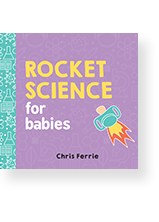
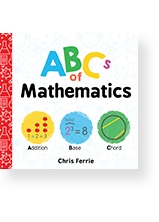
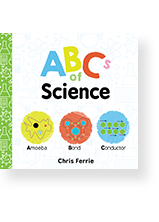
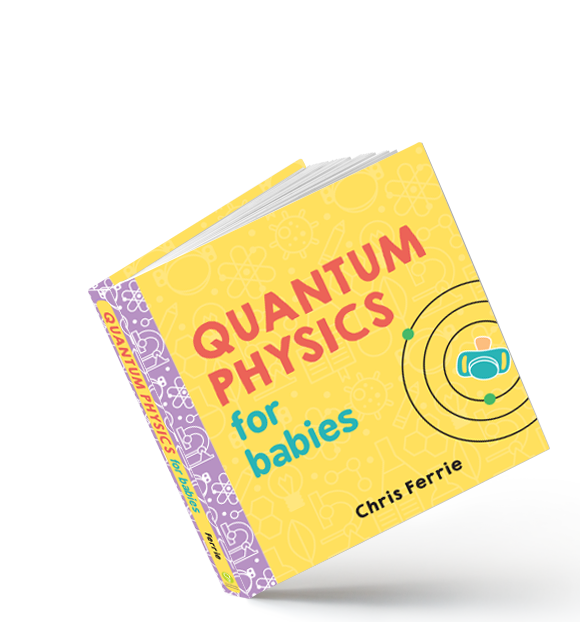
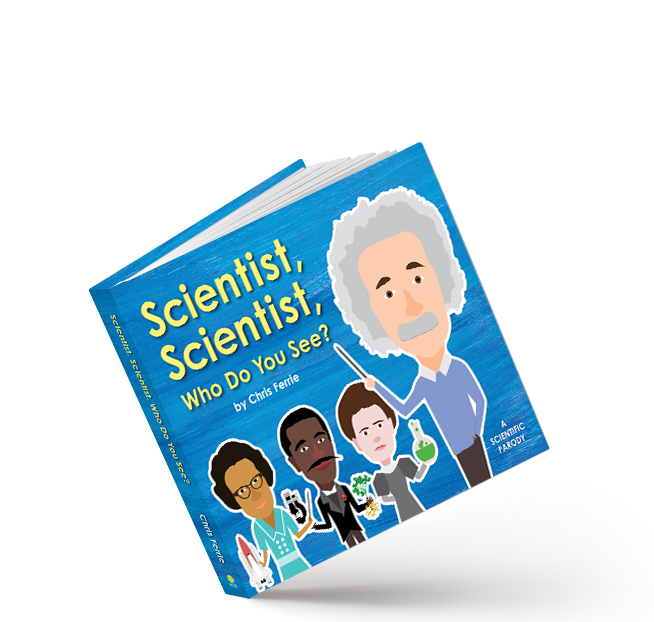
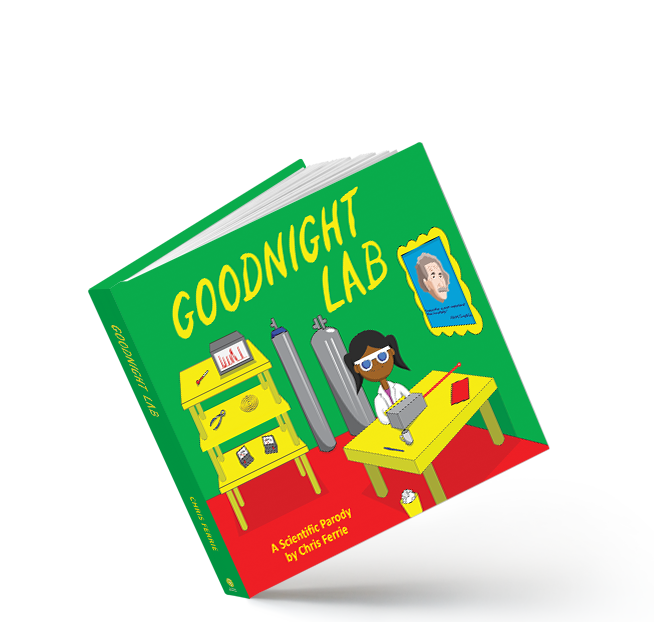
My girls first noticed the Baby University logo on the back of the books and were wondering why I was sharing baby board books with them. But, then when we sat to read them together, they could see that they were advanced in the content, and depending on the child's age, they can take in and comprehend the scientific content differently. I had saved these books for last month as we were doing a whole month about rocket science, quantum physics and the ABC's of Science, and I knew that they books would be perfect to share at the end of each week to review and discuss what we had learned earlier in the week.
My girls really enjoyed these books. They loved how the content was written so that they could understand it, and loved how their were illustrations to go along with the text, to help them better understand everything. On the back of the book there is a phrase, "It only takes a spark to ignite a child's mind," and these books do a great job in getting kids of all ages excited about science.
"Ferrie says, "These books are breaking the rules of age-appropriate learning. For decades, we have taught our children about farm animals and construction equipment―things some children may never see in real life. Meanwhile, children are holding supercomputers in their hands and we are not teaching them about science or technology. We teach our children to say lengthy words like hippopotamus—why not teach them to say proton, neutron, or electron?""
I joked with my girls that they were rocket scientists after what we learned in our homeschooling and after reading Chris Ferrie's books. They looked at me, and said that they needed to study further to be as good as the author and the rocket scientists of the world. But, thanks to what they learned thus far, they are excited about science and want to learn more. Kids' brains really are like sponges, and they are always eager to learn and absorb all the information you are willing to share with them. That is one reason why reading to your children, especially at bed time is a must, as they will develop a lifelong long for reading, get to enjoy quiet quality time with you, and will usually learn something new based on a book you share with them, or have their imaginations sparked because of the story line.
I will definitely be keeping an eye out for future Chris Ferrie releases, and have since picked up his other books in the Baby University series to share with my girls. We recently finished reading the Quantum Computing book, which my girls loved, as my husband is teaching them coding. He is a computer programming, so he gets excited when the girls want to learn about computers, and show an interest in coding and programming, which are two passions of his.
If you love sharing fun educational books with your children -- babies through young readers -- and they show an interest in STEM, then you want to check out Chris Ferrie's Baby University science books for kids. Once you read them with your children, you will see why we were instant fans, and can't wait to grow our book collection.
Check out these recent April/May releases in the series
MORE TO COME:
ABCs of Biology (June 2018)
Evolution for Babies (June 2018)
Astrophysics for Babies (July 2018)
8 Little Planets (October 2018)
---
About the Author:
Chris Ferrie, the author of the series, is an award-wining physicist with a PhD in Applied Mathematics. He is also the father of four budding young scientists. Chris originally wrote and self-published Quantum Physics for Babies and Rocket Science for Babies as a way to each his children science and technology concepts early. Ferrie believes introducing babies & toddlers to math and science promotes literacy in these subjects when they encounter them in school.
Disclosure: I was sent review copies from the publisher in exchange for an honest review. All views shared are mine and mine alone.





No comments :
Post a Comment